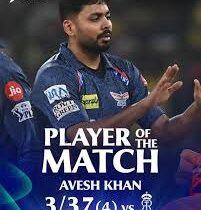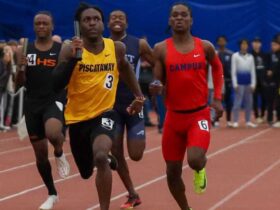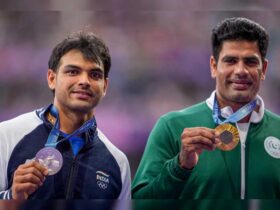As Gout Gout has bounded up the steps towards the summit of Australian athletics, never far away has been his coach Di Sheppard. Their journeys, however, could not be more different.
The teenager has arrived in the blink of an eye. The son of South Sudanese immigrants, the Ipswich Grammar student is already a global track star and national 200m champion at 17, and has run faster than Usain Bolt at the same age.
Sheppard’s struggles – as an athletics outsider, through adversity, all the while carrying trauma – have defined much of her 60 years. “I sit there and say to ‘the big man’, it’s nice to now get something good,” she says. “I think I’ve paid my dues with the stuff that you have to deal with in life.”
It has been about four years since Sheppard first started working with Gout, the length of time Sheppard believes it takes to really get to know someone. She sees that his talents go well beyond his biomechanics, commitment to training or genetic gifts.
She has recognised in Gout the “emotional intelligence” of someone older, and an ability to understand the variables, the challenges of the everyday. Overcoming them and committing to a longer goal, Sheppard sees, is part of his constitution. “You know yourself how hard that is as an adult, let alone as a kid,” she says. “He has a massive ability to be able to do that.”
Those qualities have already taken Gout far. With elite times in both the 100m and 200m, few other Australian sprinters have achieved even close to what he already has. And with global fame and a seven-year runway to the Brisbane 2032 Olympics – where the local is on track to be the main attraction – Sheppard says she has tried to do what she can to prepare him for what is to come.
“I’ve been telling him for a couple of years that when we get to a set point, your social life will be pretty much non-existent, in the sense you just can’t go out where you want,” she says. “He’s at that point pretty much now, which is kind of tough when you think he’s still at school.”
While Gout smiles widely and plays up for the cameras, Sheppard has a reputation for a frosty exterior. There’s a large difference between the pair in height, in age, in background. Gout glides around the track, while Sheppard wears a brace on her right knee and walks with a limp.
“I got hit by a car when I was on the back of a motorbike, I’ve had 11 operations on my leg,” Sheppard says. “I have golden staph in my leg, which means I can’t get my leg operated on at any random time, because there’s a good chance the infection will flare up again once the knee’s totally open.”
Sheppard prefers to avoid the limelight. She speaks rarely to media, keeps to herself, hardly drinks alcohol and is not a networker around the athletics circuit. She was only prepared to consider an interview when the season’s work – culminating in Gout’s 200m national title in Perth – was done.
But when she finally finds the right moment to talk, the woman increasingly known for her visor and sunglasses is warm and open. “I love coaching, this is where the gratefulness comes in, and I feel totally blessed that my purpose is my passion. There’s not too many people who can say that, so I revel in it when you get me talking.”
The motorcycle accident and its legacy of pain is a personal challenge she shares matter-of-factly. It is not the only one. Sheppard does not want to publicly elaborate on the precise details of her life’s darkest days, but she describes herself as being from a “trauma background”. She admits it is only since seeing a counsellor in 2021 that she has been able to psychologically process her experiences.
“What the trauma counsellor was able to do is for me to understand that, ‘Well, OK, I’m like I am, but I survived it’,” she says. “And that’s a big thing, come out the other end and go, ‘Well, I’ve accepted the fact that it made me who I am, but it’s made me strong’.”











Leave a Reply